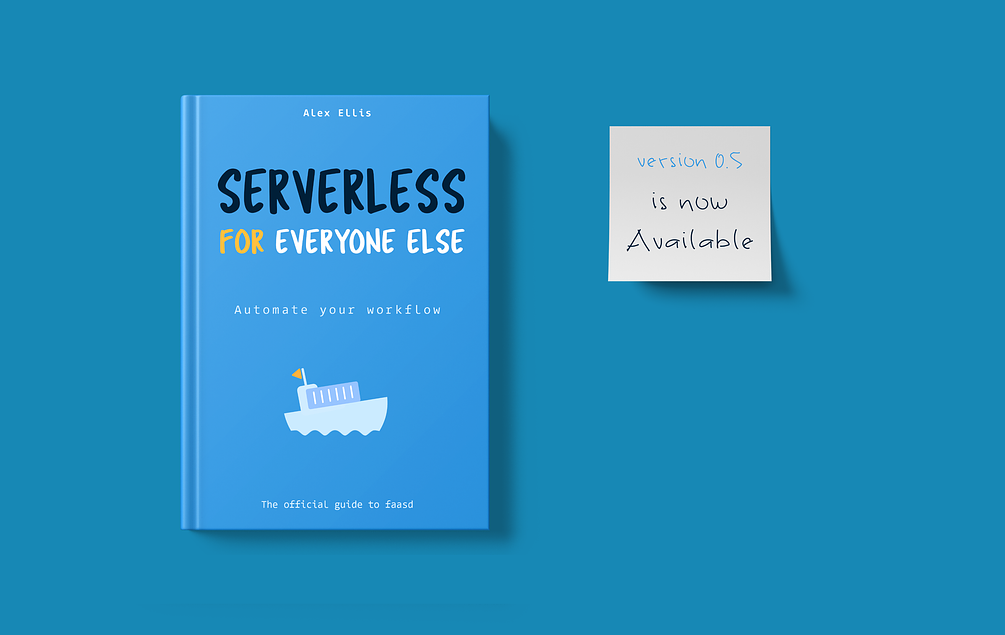Hear a bit about my background and why I'm on this journey:
- Video: Hear my OpenFaaS story over 60 months from this Gophercon keynote
- Podcast: Independent Open Source, with Alex Ellis - Kubernetes Podcast by Google
As a GitHub Sponsor, you'll hear from me every week by email - covering my journey building independent software and open source projects. I share about new features, updates, events, tutorials and often share what I've learned from reading and executing every day.
I've been self-publishing books for a year.
My best-selling book!

- Learn unit testing and how to isolate dependencies
- Make lovely CLIs for internal tools and open source projects
- Monitor your services with Prometheus metrics
- Ship your code in a container with Docker
- Learn patterns and pitfalls for using Goroutines

Learn the use-cases for serverless functions through practical exercises. You'll deploy your own self-hosted functions, write code in Node.js and using examples will start to call HTTP APIs, add npm modules and understand how to monitor your code with Grafana.
Get the eBook on its own, or upgrade to the video workshop for my expert overview.
